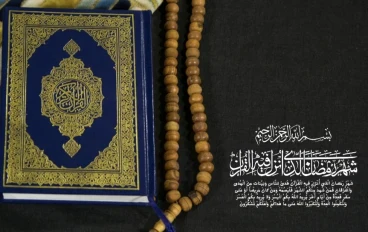
Interpretation of Verse 282: 286 of Surah Al-Baqarah

https://youtu.be/R_gc_0gCuo4?si=nfBG-T-jNF8jtCku
https://youtu.be/R4AMiFr9w5c?si=6EdIz8vOjnVz4JBIht
tps://youtu.be/UUQCHHpPe0Y?si=tyiOiGToa2-yIYeV
Surah Al-Baqarah Verse 282
O you who have believed, when you contract a debt for a specified term, write it down.
And let a scribe write [it] between you in justice.
Let no scribe refuse to write as Allah has taught him.
So let him write and let the one who has the obligation dictate.
And fear Allah, your Lord, and do not diminish anything from it.
And if the one who has the obligation is mentally deficient or weak or unable to dictate himself, then let his guardian dictate in justice.
And bring to witness two witnesses from among your men.
And if there are not two men, then a man and two women from those whom you accept as witnesses . so that if one of the women errs, the other can remind her.
And let not the witnesses refuse when they are called upon.
And do not be [too] weary to write it, whether it is small or large, for its [specified] term.
That is more just in the sight of Allah and stronger as evidence and more likely to prevent doubt between you.
But if it is an immediate transaction which you conduct among yourselves, then there is no blame upon you if you do not write it.
And take witnesses when you conclude a contract.
And let neither scribe nor witness be harmed.
For if you do so, indeed, it is [grave] disobedience in you.
And fear Allah.
And Allah teaches you.
And Allah is Knowing of all things.
Surah Al-Baqarah Verse 283
And if you are on a journey and cannot find a scribe, then a security deposit [should be] taken.
And if one of you entrusts another, then let him who is entrusted discharge his trust [faithfully] and let him fear Allah, his Lord.
And do not conceal testimony, for whoever conceals it – his heart is indeed sinful, and Allah is Knowing of what you do."
Surah Al-Baqarah Verse 284
To Allah belongs whatever is in the heavens and whatever is in the earth.
Whether you show what is within yourselves or conceal it, Allah will bring you to account for it.
Then He will forgive whom He wills and punish whom He wills, and Allah is over all things competent.
Surah Al-Baqarah Verse 285
The Messenger has believed in what was revealed to him from his Lord, and [so have] the believers.
All of them have believed in Allah and His angels and His books and His messengers, [saying], “We make no distinction between any of His messengers.
” And they say, “We hear and we obey. [Grant us] Your forgiveness, our Lord. And to You is the [final] destination.”
Surah Al-Baqarah Verse 286
Allah does not burden a soul beyond that it can bear. For it is what it has earned (of good), and against it is what it has acquired (of evil).
Our Lord, do not impose blame upon us if we forget or make a mistake. Our Lord, and lay not upon us a burden like that which You laid upon those before us.
Our Lord, and burden us not with that which we have no ability to bear. And pardon us; and forgive us; and have mercy upon us. You are our Protector, so give us victory over the disbelieving people."
Interpretation of Verse 282: 286 of Surah Al-Baqarah
Interpretation of Verse 282 of Surah Al-Baqarah
The verse begins by calling on believers to fulfill their obligations.
God commands believers, if they owe a debt due for a specific period, to write it down.
This command comes from God to relieve hardship, guarantee rights, and document them
.
Let us give an example to clarify our understanding of the verse: Muhammad borrowed a thousand pounds from Mahmoud.
The legal ruling here is that God commands them to write down the debt owed by the person for a specific period. Because this is a command from God, there is nothing wrong with writing it down.
You will not find anyone who says, "We are companions" and does not write it down for fear of harming someone. If writing down the debt is not harmful, given the harm it may cause to the heirs, then implementing God's command removes that harm.
The writer is neither the debtor nor the creditor; he is another person, and he cannot refrain from writing it down. This is a command from God Almighty. It must be written down exactly as the creditor dictates, without omitting any detail, and it must be fair to serve as evidence. One must fear God in what he dictates.
If the creditor is ignorant, weak, or unable to dictate, let his guardian dictate to him fairly. Take two men from among your men as witnesses. If there are no men, then the testimony of one man and two women whose testimony you trust. If one of them forgets, the other can remind her.
No one may refuse to testify. Every detail, great or small, must be carefully recorded. All of it must be memorized and recorded fairly. This is better for you than arousing doubt. The creditor may not harm the scribe or the witness, for that is a sin; it will harm you.
Fear God, fear God, for God knows you and protects you, and He sees you.
Interpretation of Verse 283 of Surah Al-Baqarah
God Almighty has not overlooked the issue of debt, even when traveling.
The verse explains that when traveling, if someone is forced to borrow and there is no scribe or witness, God stipulates that he leave some of his property as collateral.
This means that the debtor guarantees the creditor's debt. Writing down debts and witnessing them while residing, and making a covenant while traveling, are all measures intended to protect people from social pressure.
However, if they are entrusted with their trusts, there may be no covenant between them.
Nevertheless, God Almighty reminds them that they are trustees of one another, because one is entrusted with the covenant they hold, and the other is entrusted with the debt. Therefore, God Almighty commands each trustee to fulfill their trust to the other, to fear God in this matter, and not to conceal it when asked about their testimony.
If they conceal their testimony, concealing their testimony is a sin of the heart, and God Almighty informs them that He is All-Knowing of what they do.
Interpretation of Verse 284 of Surah Al-Baqarah. The verse begins with the name of God, "to God," meaning limitation and restriction.
Everything in existence is in God's hand, and no one owns anything; everything is perishable. Even man, whom God made a vicegerent and made the earth a place of residence and dominion, had only his time remaining on this earth.
I will give an example to clarify. Before we give an example, we must know that examples in this world are given to us through tangible things to illustrate the unseen.
Any example is understood to be incomparable. We do not compare God to anything in this world. Let us take the example of an employee who has worked for a company for twenty years.
The company entrusts him with
its collateral.sometimes a car, sometimes an apartment near his workplace, or equipment. After his specified term with the company expires, he must hand over this collateral to his successor, and he must hand it over as it was before, without any loss.
This applies to anyone who owns real estate, land, or other property. In this world, we fulfill our mission, which is to please God and His Messenger. Then we hand over the trust.
We must surrender it without causing destruction or sin, because we will be held accountable for our humanity and actions. God Almighty is the Owner of the heavens and the earth. If people feel they have purchased this land or these properties, they can live freely in this world, God has set guidelines and a methodology that must be followed.
If a person chooses God's path, follows His commands, and avoids His prohibitions, and dies at the end of his life and meets God, he will own nothing but his deeds. It is as if this wealth is a temporary trust from God, entrusted to an individual or company.
This trust continues until it reaches its origin and is handed over to its Creator. Will a person dispose of his wealth in a manner that pleases God or not?
We are on God's earth, and He knows the treachery of the eyes and what the hearts conceal. Therefore, God Almighty warns us to be aware of our actions. He knows what we reveal and what we conceal within ourselves, and He will hold us accountable for them.
He is able to forgive whomever He wills and punish whomever He wills.
Interpretation of Verse 285 of Surat Al-Baqarah
The Holy Quran explains to us that God Almighty, who created the heavens and the earth and is capable of all things, testified that there is no god but Him. God Almighty gathered both the Messenger and the believers in one faith, which is belief in God Almighty.
This is natural, because the Messenger, may God bless him and grant him peace, believed in God first, and he testified that Muhammad is the Messenger of God, may God bless him and grant him peace.
After that, the Messenger, may God bless him and grant him peace, conveyed his message to us, and we, the believers, believed in God.
Thus, the formation of faith is complete, and everyone testifies that there is no god but God and that Muhammad is the Messenger of God.
The believers all believe in God, His angels, His books, and His messengers, and they all believe in all the messengers and do not disbelieve in any of the messengers.
They listened to the commands of God and His Messenger, obeyed God Almighty's commands, avoided His prohibitions, and sought forgiveness from God, knowing that their destiny was to return to God Almighty
Interpretation of Verse 286 of Surat Al-Baqarah
This noble verse explains that God Almighty does not charge a soul except [with that within] its capacity. God Almighty has enjoined upon every Muslim five daily prayers, filling their time with them. People have performed Sunnah and voluntary prayers that God did not enjoin upon them.
This is evidence of people's ability to perform the obligatory prayers. The same applies to the obligatory zakat. God enjoined zakat but. some of them gave charity and spent all their wealth in the way of God. Therefore, God charges us with what we are capable of. soul does good and earns it in this world, ..and in the Hereafter, God will reward it with Paradise.
As for the soul that commands evil or the unbelieving, unjust soul, it commits evil and earns evil and is held accountable for what it has committed and earned. They will abide in Hell forever.
It is narrated that when God Almighty heard the believers' supplication that He not hold them accountable for forgetfulness and mistakes, someone said: “The Messenger of God, may God bless him and grant him peace, reassured us by saying, 'My nation has been lifted from misguidance, forgetfulness, and that which they were forced to do.'”
This lifting came after the supplication of the Messenger and previous believers, when he heard the believers supplicate to God, saying, "Do not place a burden on us like that which You placed on those before us, the Jews."
The meaning of "burden" is that He will not place on them what the Jews placed on them. This is what was revealed to the Jews when God commanded them,
if they wanted to repent, to kill themselves, give in charity, or give a quarter of their wealth as zakat. However, God did not treat the believers as He had treated previous nations. Rather, He heard their supplication and answered them, saying, “I have done so.”
He heard the Messenger and the believers praying that He would not place a burden beyond their capacity. God Almighty said, "Yes." So God answered their supplication and lifted the burden from the nation.
This means that God will not place a burden on us beyond our capacity. God has only charged us with what is within our capacity, which is the common destiny of all believers.
Believers turn to God with humility: "O Truth, You know that no matter how great our faith and how diligent we are in piety, we will never be able to fulfill Your right." Therefore, we enter only through the door of forgiveness.
The meaning of forgiveness is to erase the traces. The believer fears that God will be angry with him, which is the most severe punishment. He cannot bear God's wrath, so we seek forgiveness from God and pray that He will not cause us to fall into the sin that would incur His wrath.may God spare us from it.
Forgiveness is when we commit a sin and ask God for forgiveness. Mercy is when we pray to God that He will never cause us to fall into sin. They acknowledge their servitude to God Almighty and that God is their Master, and they ask God, the One to be worshipped, to grant them victory over
the disbelieving people.
With all this supplication and servitude to God, God Almighty says in His mercy: “I have done it.”






































